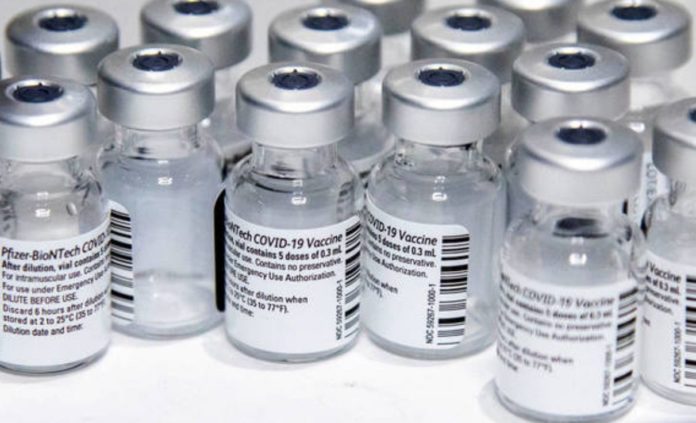Following the publication of these data, the companies have advanced in a statement that they plan to present this data “in the coming weeks” to the FDA and the EMA.
Pfizer and BioNTech announced Wednesday that their COVID-19 vaccine has shown 100 percent efficacy and robust antibody responses in a phase 3 trial of 2,260 adolescents 12 to 15 years of age with or without prior evidence of SARS-CoV-2 infection.
- Scientists in Fear of This New Predator From Red Sea Eating Native Species in Mediterranean
- Does This Mean We Stopped Being Animal and Started Being Human Due to ‘Copy Paste’ Errors?
- The One Lifestyle Choice That Could Reduce Your Heart Disease Risk By More Than 22%
- Aging: This Is What Happens Inside Your Body Right After Exercise
- Immune-Boosting Drink that Mimics Fasting to Reduce Fat – Scientists ‘Were Surprised’ By New Findings
Following the publication of these data, the companies have advanced in a statement that they plan to present this data “in the coming weeks” to the US Food and Drug Administration (FDA) and the European Medicines Agency (EMA) to request a modification of the authorization, in order to expand its use in adolescents between 12 and 15 years of age “as soon as possible”.
“We share the urgency to expand the authorization of our vaccine to use in younger populations and are encouraged by the clinical trial data from adolescents between the ages of 12 and 15,” said the president and CEO of Pfizer, Albert Bourla.
“The initial results we have seen in the adolescent studies suggest that children are particularly well protected by vaccination, which is very encouraging given the trends we have seen in recent weeks regarding the spread of the B.1.1.7 UK variant. It is very important to enable them to get back to everyday school life and to meet friends and family while protecting them and their loved ones,” added BioNTech CEO and co-founder, Ugur Sahin.
The trial involved 2,260 adolescents 12-15 years of age in the United States. In the trial, 18 COVID-19 cases were observed in the placebo group (1,129) versus none in the vaccinated group (1,131). Vaccination demonstrated strong immunogenicity in a subset of adolescents one month after the second dose. This result is comparable to those obtained in participants 16 to 25 years of age in a previous analysis.
In addition, the vaccine was well tolerated, with side effects generally consistent with those seen in participants 16 to 25 years of age. All trial participants will continue to be monitored for long-term safety and protection for a further two years after their second dose. Pfizer and BioNTech plan to submit the data to a scientific peer review for possible publication.
Last week, Pfizer and BioNTech administered the first dose to the first healthy children in a global phase 1/2/3 study to further evaluate the safety, tolerability, and immunogenicity of the Pfizer-BioNTech covid-19 vaccine in children from 6 months to 11 years of age.
- Scientists in Fear of This New Predator From Red Sea Eating Native Species in Mediterranean
- Does This Mean We Stopped Being Animal and Started Being Human Due to ‘Copy Paste’ Errors?
- The One Lifestyle Choice That Could Reduce Your Heart Disease Risk By More Than 22%
- Aging: This Is What Happens Inside Your Body Right After Exercise
- Immune-Boosting Drink that Mimics Fasting to Reduce Fat – Scientists ‘Were Surprised’ By New Findings
The study is evaluating the safety, tolerability, and immunogenicity of the vaccine in a two-dose schedule, with an interval of approximately 21 days, in three age groups: children 5 to 11 years, 2 to 5 years, and 6 months to 2 years. The 5 to 11-year-old cohort started receiving the dose last week, and companies will start the 2 to 5-year-old cohort next week.
